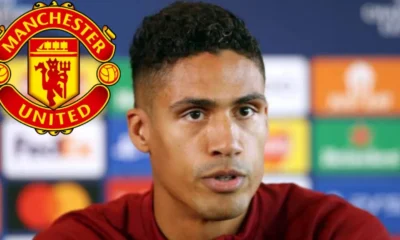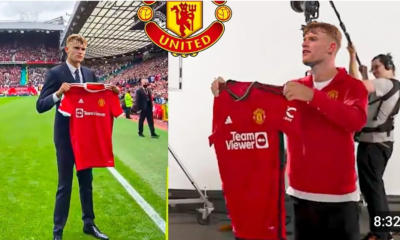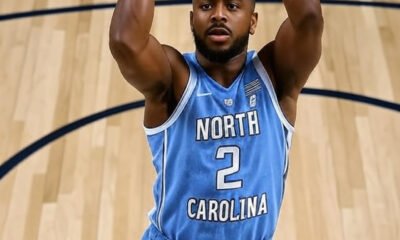Blog
Shocking: Lane Kiffin Risking Entire Life Savings to Fly Ole Miss football Players in Style.
Shocking: Lane Kiffin Risking Entire Life Savings to Fly Ole Miss Football Players in Style
In an unprecedented move that’s both capturing headlines and stirring controversy across the college football landscape, Ole Miss head coach Lane Kiffin is reportedly risking his entire life savings to provide his players with a luxurious travel experience—flying them in style to upcoming games. This bold and controversial decision has reignited debates over player treatment, financial ethics, and the boundaries of coaching generosity in the NCAA.
—
### A Coach’s Dedication or Disruptive Gamble?
Lane Kiffin, renowned for his fiery personality, innovative strategies, and unorthodox approach, has long been a polarizing figure in college football. Now, he’s making headlines not just for his coaching prowess but for what some are calling a “reckless financial gamble” aimed at motivating his team and elevating Ole Miss’s program.
Sources close to the program reveal that Kiffin has committed his personal savings—reportedly in the hundreds of thousands of dollars—to finance a series of first-class flights, luxurious buses, and exclusive travel accommodations for the Rebels’ upcoming away games. The goal? To give his players an experience that rivals professional teams and foster a sense of unity, pride, and motivation.
—
### The Details of the ‘Style-Forward’ Travel Plan
According to leaked internal memos and multiple sources, Kiffin’s plan involves:
– **Private Jets and First-Class Flights:** Instead of standard commercial travel, players will be flown on private jets or in first-class cabins, complete with gourmet catering, plush seating, and entertainment systems.
– **Luxury Bus Transfers:** For ground transportation, the team will be transported in customized, high-end charter buses featuring premium amenities, including comfortable seating, Wi-Fi, and onboard catering.
– **Exclusive Accommodations:** When traveling to away games, the team will stay in top-tier hotels with amenities designed to optimize rest and recovery—luxury suites, spa services, and tailored nutrition.
– **Personalized Travel Experiences:** Players have been given the option to bring family members or close friends along for the journey, further emphasizing Kiffin’s focus on team cohesion and morale.
Kiffin reportedly believes that “if players feel valued and appreciated, they’ll perform at their best,” and he’s willing to put his own money on the line to demonstrate this commitment.
—
### The Motivational Impact and Player Reactions
Many players have expressed enthusiasm about the lavish travel arrangements, viewing it as a sign of respect and investment in their success. Senior linebacker Jake Johnson stated, “It’s pretty incredible. Coach Kiffin is going all out to make sure we feel appreciated. It motivates us to give our best on the field—knowing our effort is recognized and rewarded.”
Freshman quarterback Malik Taylor added, “It’s a once-in-a-lifetime experience. Traveling in style boosts our confidence and makes us feel like we’re part of something special.”
The players’ reactions highlight a broader trend in college sports: an increasing desire for player recognition, comfort, and engagement, especially in an era of NIL deals and heightened athlete visibility.
—
### The Controversy: Ethics, NCAA Rules, and Financial Risks
While many players and fans laud Kiffin’s generosity, critics and NCAA officials are raising eyebrows. The core issues include:
**1. NCAA Regulations and Compliance:**
The NCAA has strict rules regarding permissible expenses for student-athletes, emphasizing that costs should be educational or related to athletic participation. Critics argue that extravagant travel could breach these guidelines, especially if it’s viewed as an inducement or an attempt to gain competitive advantage.
**2. Financial Ethics and Personal Risk:**
Kiffin’s decision to dip into his personal savings raises questions about the financial sustainability and ethical implications. Is a coach risking his personal future for a program that may not generate sufficient revenue? Could this lead to financial strain or affect his personal life?
**3. Fairness and Competitive Balance:**
Some argue that such lavish spending creates an uneven playing field, with wealthy programs potentially outspending others to attract and motivate players, thereby intensifying disparities in college football.
**4. Player Welfare and Message:**
Critics warn that prioritizing luxury travel might overshadow academic responsibilities or mental health considerations. There’s concern that such excess could foster entitlement rather than discipline.
—
### The Broader Context: Player Treatment and the Modern College Game
Kiffin’s approach taps into a larger conversation about how college programs treat athletes. With NIL opportunities allowing players to profit from their fame, questions about player compensation, luxury treatment, and the culture of college sports are more pertinent than ever.
Some see Kiffin’s move as a positive shift—an acknowledgment that athletes deserve respect, comfort, and recognition. Others see it as a dangerous precedent, risking the integrity of amateurism and fostering a culture of excess.
### Supporters’ Perspectives
Proponents argue that:
– **Motivation and Morale:** Lavish travel can boost team chemistry and motivation, leading to better performance.
– **Player Satisfaction:** Showing appreciation can reduce burnout and increase retention, especially in a highly competitive environment.
– **Innovative Leadership:** Kiffin’s willingness to invest personal resources demonstrates commitment and leadership, inspiring other coaches to prioritize athlete well-being.
### Opponents’ Concerns
Opponents counter that:
– **Financial Risks:** Coaches shouldn’t be personally liable for expenses that may have broader NCAA compliance implications.
– **Unequal Playing Field:** Excessive spending by one program could undermine competitive fairness.
– **NCAA Rules Violation:** Such expenses may violate NCAA regulations on permissible benefits and could lead to sanctions.
—
### The Future of College Football Travel?
Kiffin’s gamble signals a potential shift in how college football programs might approach team travel and athlete treatment. If successful, it could inspire other coaches and programs to adopt more athlete-centric policies—possibly leading to increased costs, regulatory debates, and new standards for player experience.
However, it also raises important questions about sustainability, fairness, and the core values of amateur sports. Will other programs follow suit, risking financial and regulatory pitfalls? Or will the NCAA step in to regulate such lavish spending?
### What’s Next?
Ole Miss officials have yet to formally comment on Kiffin’s personal financial involvement, but the university’s administration has generally supported the coach’s innovative approach—emphasizing player welfare and team unity.
Meanwhile, NCAA regulators are reportedly reviewing the situation, with some insiders suggesting that new guidelines could be introduced to clarify permissible expenses related to athlete travel and accommodations.
—
### Conclusion: A Risky Gamble With High Stakes
Lane Kiffin’s bold move to risk his life savings to fly Ole Miss football players in style exemplifies a coaching philosophy rooted in motivation, recognition, and a desire to push boundaries. While it has garnered admiration for its boldness and player-centric focus, it also sparks vital debates about ethics, regulation, and the future of college sports.
Whether this approach sets a new standard or becomes a cautionary tale remains to be seen. What’s undeniable is that Kiffin’s daring gamble has once again placed Ole Miss and its head coach at the center of college football’s evolving narrative—challenging norms and provoking discussions about the true cost of success on and off the field.
-

 Arsenal2 years ago
Arsenal2 years agoSad News Arsenal ex player who is goal scorer confirmed dead this morning
-

 Liverpool2 years ago
Liverpool2 years agoSad News Sadio Manè Confirmed Dead Today By Sky Sports Reporters, Open For Full Story 👇
-

 Blog1 year ago
Blog1 year ago“I was forcefully removed from Manchester United squad and now I’ve joined the best team in the world…I will revenge and as a result, I’ve ordered my friend who’s their best player currently to leave there with immediate effect and he has agreed”: Former Man United player angered by United decision to removed him from the squad as he ordered the Club’s best player to leave immediately.
-

 Blog1 year ago
Blog1 year agoSad News: Manchester United player died when playing for his country England yesterday 😢 😔
-

 Blog2 years ago
Blog2 years agoR.I.P: Formal Real Madrid and France international confirm death this morning
-

 Chelsea2 years ago
Chelsea2 years agoBreaking New:”Roman Abramovich could get Chelsea back”? Chelsea owner review the conversation between him and Roman Abramovich in. Deal about getting Chelsea back
-

 Blog2 years ago
Blog2 years agoUNBELIEVABLE: Manchester City midfielder KELVIN DE BRUYNE divorced wife this morning after DNA test revealed their 5 years old son belongs to formal Manchester United player
-

 Manchester United1 year ago
Manchester United1 year agoOFFICIAL NOW: Manchester United announce the signing of 23yr sensational player after beating Liverpool and Madrid for His signature, agreement reached on a 5yr deal, Medical completed – announcement ongoing












